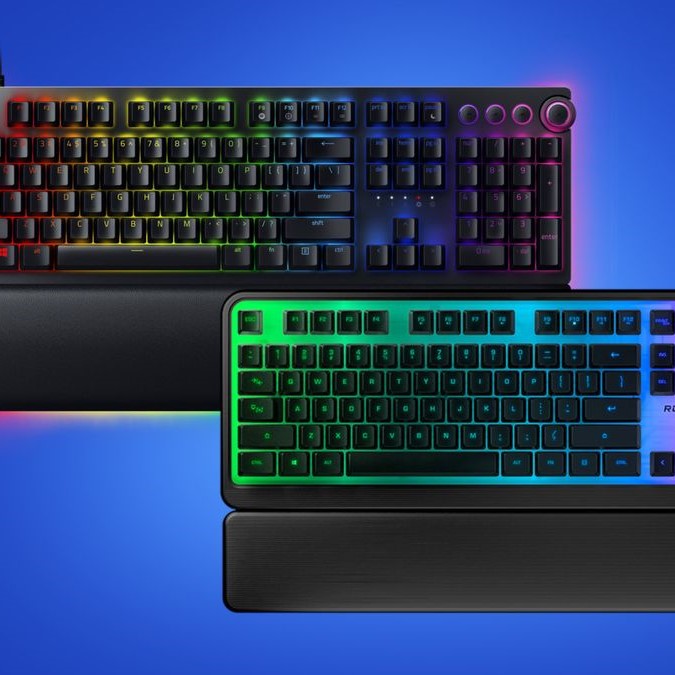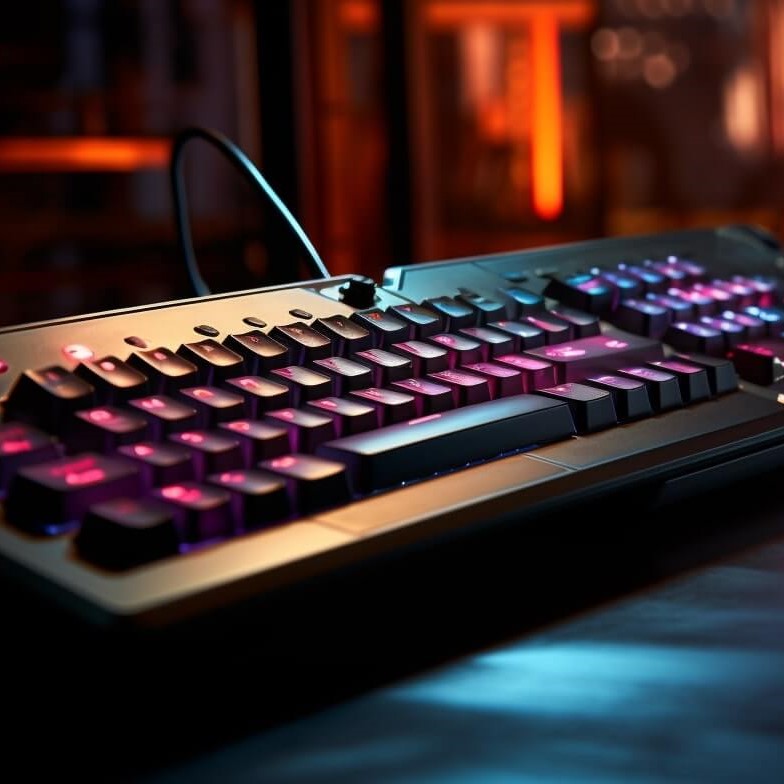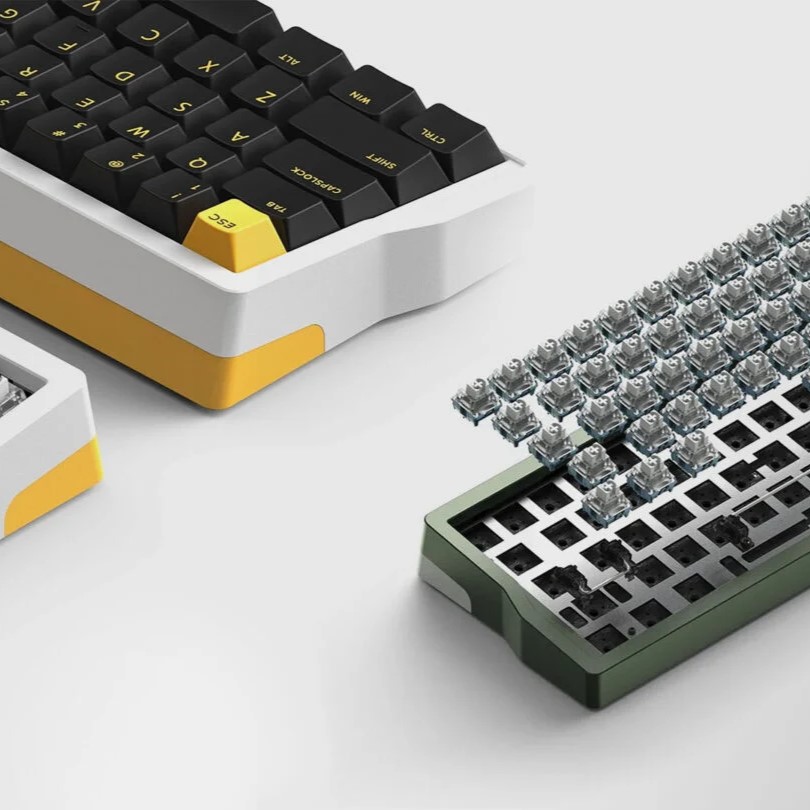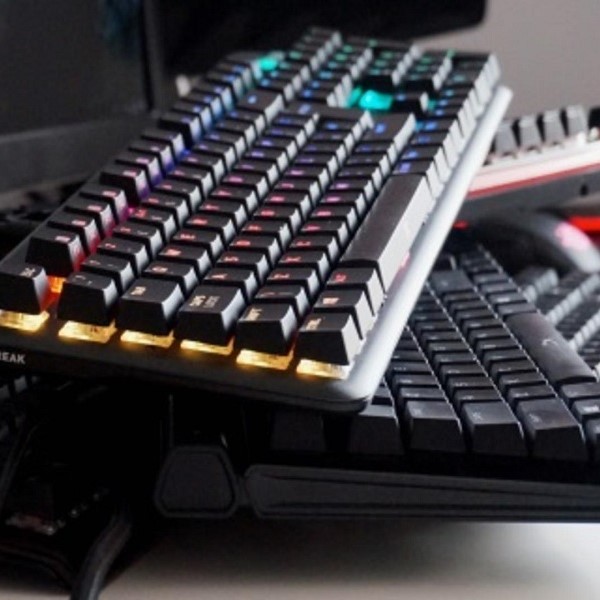Choosing the right keyboard can significantly enhance your typing experience, whether you’re a gamer, a professional, or someone who spends countless hours typing each day. Among the myriad options available, mechanical vs membrane keyboard is a common debate that influences many purchase decisions. Understanding the differences, benefits, and drawbacks of each type can help you make an informed choice. In this article, we will delve into the key aspects of mechanical and membrane keyboards, comparing their features to determine which one suits your needs best.
Introduction to Mechanical Keyboards
Mechanical keyboards are favorites among typists and gamers alike. They feature individual switches under each key. This design gives a noticeable tactile feedback. When you press a key, you hear a satisfying click. This click signifies actuation – the key’s registration. Each switch also has a spring. Springs help return the key to its original position after pressing.

They come in various switch types. Key switches can range from linear to clicky and tactile. This variety affects the keyboard feel and noise level. Some prefer the loud feedback. Others may opt for quieter, smoother keystrokes.
The build of mechanical keyboards is generally more robust. They are made with higher quality materials. This usually leads to a longer lifespan for the keyboard. But it can also mean a higher price, which is a crucial factor to consider.
Using keywords, mechanical versus membrane keyboard debates often focus on typing experience. Mechanical keyboards provide a certain precision and speed. This can enhance the typing quality and gaming performance. However, the experience may vary depending on personal preferences and the specific tasks at hand.
Introduction to Membrane Keyboards
Membrane keyboards differ greatly from their mechanical counterparts. They work on a different principle. Under each key, a rubber dome and a membrane layer register key presses. When a user pushes a key, it presses down on the dome. This makes an electrical contact with the circuit underneath. The action does not produce a tactile click similar to mechanical keyboards.
Such keyboards are typically softer and quieter. This quality makes them suitable for environments that require low noise. They are also more lightweight than mechanical keyboards. Users often find them easy to handle and transport. Another benefit is their price. They are generally more budget-friendly. This makes them an attractive option for casual users or those with a tight budget.
Membrane keyboards have their own set of switch types. But the variants in feeling and sound are less distinct than mechanical switches. Some users prefer the uniform feel across the keyboard. This can reduce the learning curve for new users. However, they may not provide the same level of performance as mechanical keyboards. For heavy typists and gamers, this could be a crucial factor.
They also differ in terms of build quality and materials. Membrane keyboards often use less expensive components. This can affect their durability and lifespan. It also influences the typing experience. Some users may find the feel less satisfying. Others appreciate the softer touch and quieter performance. It all comes down to personal preference and the intended use of the keyboard.
 Key Differences Between Mechanical and Membrane Keyboards
Key Differences Between Mechanical and Membrane Keyboards
When comparing mechanical vs membrane keyboard types, there are several key differences to consider. Here are the most significant contrasts:
Switch Mechanism:
Mechanical keyboards have individual switches for each key which gives a distinct tactile feedback, whereas membrane keyboards have a rubber dome under each key which makes them softer and less noisy.
Durability:
Mechanical keyboards typically boast superior build quality with materials that often translate to a longer lifespan. In contrast, membrane keyboards, due to their less expensive components, may have a shorter operational lifetime.
Typing Experience:
The typing on mechanical keyboards is generally more precise, offering an experience that can potentially improve speed and accuracy. Membrane keyboards offer a more uniform feel which might be less satisfying for heavy typists but can be easier for new users to adapt to.
Sound:
The clicky noise of a mechanical keyboard can be loud, making it less suitable for quiet environments. On the other hand, the membrane keyboard operates quietly, making it a better choice when noise is a concern.
Cost:
In most cases, mechanical keyboards are more expensive due to their durable construction and the technology behind the individual key switches. Membrane keyboards are more cost-effective, which can be ideal for those on a budget.
Customization:
There is a broader range of customization options available for mechanical keyboards, from the type of switch to replacing keycaps. Membrane keyboards usually have limited customization opportunities.
Response Time:
For gaming and intensive typing, mechanical keyboards usually offer faster response times due to their switch design. Membrane keyboards may have a slightly slower response time, which can affect performance in time-sensitive tasks.
These differences should be weighed carefully when choosing between a mechanical and a membrane keyboard, as they can significantly impact the user’s typing experience and performance depending on their specific needs and environment.
Pros and Cons of Mechanical Keyboards
Mechanical keyboards bring a unique set of advantages and disadvantages to the table. Understanding these can help users make an informed decision on whether they fit their needs.
Pros of Mechanical Keyboards:
- Enhanced Durability: These keyboards are built to last. High-quality materials make them more robust over time.
- Better Typing Experience: They offer precise, tactile feedback. This can lead to faster typing speeds and more accuracy.
- Customization Options: Users can customize switch types and keycaps. This allows for a personalized keyboard feel.
- Improved Gaming Performance: The quick actuation of keys is ideal for gaming. It enhances responsiveness and gameplay.
- Aesthetic and Niche Appeal: Mechanical keyboards often have a premium look. They also cater to those who appreciate tech aesthetics.
Cons of Mechanical Keyboards:
- Higher Cost: The quality of materials and technology reflect in their price. They are typically more expensive than membrane keyboards.
- Noise Level: The clicking sound can be loud. It might disturb those in quiet environments or shared spaces.
- Weight: They are usually heavier. This can be a downside for those needing a portable option.
- Maintenance: Mechanical keyboards may require more maintenance. Cleaning individual keys and switches is needed to keep them performing well.
Choosing a mechanical keyboard involves weighing these pros and cons. Potential users should base their decision on personal preference, frequency of use, and their specific computing environment.
 Pros and Cons of Membrane Keyboards
Pros and Cons of Membrane Keyboards
When debating mechanical vs membrane keyboard options, it’s crucial to explore the strengths and weaknesses of membrane keyboards. These factors can affect user satisfaction and overall performance.
Pros of Membrane Keyboards:
- Affordable: They typically cost less than mechanical keyboards. This makes them a smart pick for budget-conscious users.
- Quiet Operation: They produce less noise during typing. This is key for shared or silent workspaces.
- Lightweight Design: The design is often more compact and easier to move. Ideal for those who travel or have limited desk space.
- Simple Interface: Membrane keyboards have a uniform key feel. This is easier for newcomers to typing or casual users.
Cons of Membrane Keyboards:
- Lower Durability: Made with less expensive materials, they may not last as long.
- Less Tactile Feedback: The soft keypress may not be satisfying for all, especially heavy typists.
- Limited Customization: Fewer options for personalization compared to mechanical keyboards.
- Slower Response Time: They might not respond as quickly, which could impact gaming and high-speed typing tasks.
When considering membrane keyboards, potential buyers should think about how these pros and cons align with their computing habits and preferences. Are they looking for an inexpensive, quieter keyboard for everyday tasks? Or do they need highly responsive, durable equipment for intense gaming and typing? The answers to these questions are vital in choosing the right keyboard type.
 How to Choose Between Mechanical or Membrane Keyboards
How to Choose Between Mechanical or Membrane Keyboards
Choosing between mechanical and membrane keyboards depends on several factors. Consider your main activities. Are you a gamer, a writer, or need a keyboard for general use? Think about your environment. Is it shared, or do you need to keep noise levels down? Weigh your budget. Can you invest in a high-quality keyboard, or are you looking for value?
To make an informed choice, first identify your priorities:
- Activity Type: Gamers and frequent typists may prefer mechanical for faster response. Casual users may lean toward membrane keyboards.
- Noise Sensitivity: If you’re in a noise-sensitive environment, a membrane keyboard is quieter.
- Portability: Need to move your keyboard often? Membrane keyboards are lighter.
- Budget: Mechanical keyboards are costlier but offer longer durability.
- Feel Preference: Do you enjoy a tactile typing experience? Go for mechanical. Otherwise, a membrane keyboard has a softer touch.
Match your needs with the qualities of the keyboard. If customization and durability top your list, a mechanical keyboard is better. If you prioritize cost and quieter operation, a membrane keyboard may suit you best. Don’t forget to test different keyboards if possible. Feeling the keys can make your decision easier. Beyond individual preferences, think about how long you plan to use your keyboard each day. Long-term comfort is crucial. Remember, your choice should enhance your computing experience, not hinder it.
Impact of Keyboard Type on Gaming and Typing
The choice between mechanical vs membrane keyboard can significantly affect both gaming and typing experiences.
Gaming: For gamers, the keyboard acts as their controller. Mechanical keyboards offer a key advantage with quicker response times and a tactile feel that’s crucial during fast-paced games. Faster actuation means commands are registered swiftly, which can be the split-second difference between victory and defeat. The customizable switch types also let gamers tailor their setup for optimal performance.
Typing: Writers and typists, meanwhile, might value the consistent tactile feedback and precision that mechanical keyboards provide. These qualities can improve typing speed and reduce errors, making long typing sessions more efficient and comfortable. On the other hand, membrane keyboards, with their softer keypress, offer a more fluid and quieter typing experience, which can minimize fatigue and disturbance in quiet environments like libraries or shared offices.
In both gaming and typing, comfort and personal preference play big roles. Mechanical keyboards prove their worth in environments where speed and accuracy are paramount. Conversely, membrane keyboards hold their own where noise sensitivity is a priority or when gentle, less forceful typing is preferred.
In summary, the impact is clear: mechanical keyboards may boost gaming and typing performance, while membrane keyboards cater to those who prioritize quietness and a smooth, consistent key feel. Choosing the suitable keyboard type is about aligning these factors with your needs and preferences.
Maintenance and Durability Considerations
When deciding between mechanical vs membrane keyboard, maintenance and durability come into play. Let’s drill down into what you should consider for each type.
Mechanical Keyboard Maintenance and Durability
Mechanical keyboards are known for their longevity. High-quality materials mean they often outlast their membrane counterparts. Yet, this durability comes with a need for upkeep. Dust and debris can settle between keys. Regular cleaning is needed to maintain performance and aesthetics. Replacing worn-out keycaps is possible when needed.
Membrane Keyboard Maintenance and Durability
Membrane keyboards require less maintenance due to their simpler construction. However, they may wear out faster. The rubber domes can degrade over time, leading to less responsive keys. Regular cleaning is still important, but you can’t easily replace parts like you can with mechanical keyboards.
In summary, mechanical keyboards demand more maintenance but reward you with more durability. Membrane keyboards, offering less upkeep, might need replacing sooner. Weigh these factors against how much you’re willing to invest in care and longevity when choosing your keyboard.
 Cost Comparison
Cost Comparison
When looking at mechanical vs membrane keyboard types, cost is a major consideration for many. Here we break down the expenses associated with each kind of keyboard to help you make a wise financial decision.
Mechanical Keyboards:
- Initial Investment: You’ll pay more upfront for a mechanical keyboard. The precise engineering and higher quality materials rack up the cost.
- Long-Term Value: Despite the steep initial price, their durability can make them more cost-effective over time.
Membrane Keyboards:
- Lower Price Point: They come with a more wallet-friendly price tag, which is great for those not wanting to spend much.
- Potential for Higher Replacement Costs: Because they may not last as long, you might find yourself replacing them more often.
In the end, your budget and how long you expect to use your keyboard should guide your choice. If you want a long-term investment and can afford the higher cost, a mechanical keyboard might be the right pick. However, if you’re working with a tight budget or need a short-term solution, a membrane keyboard could be more suitable.